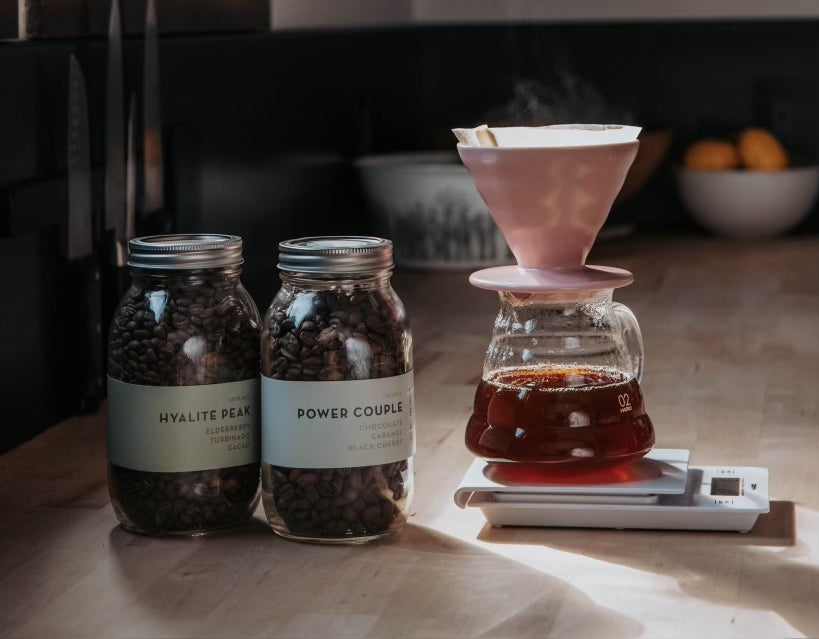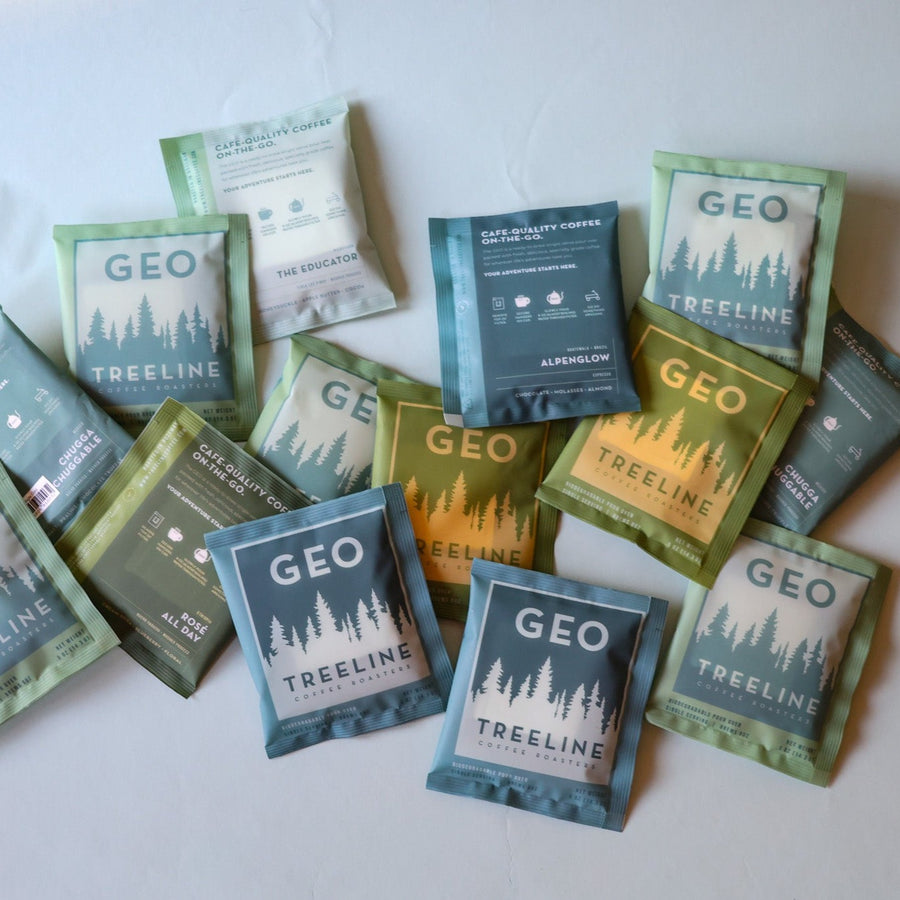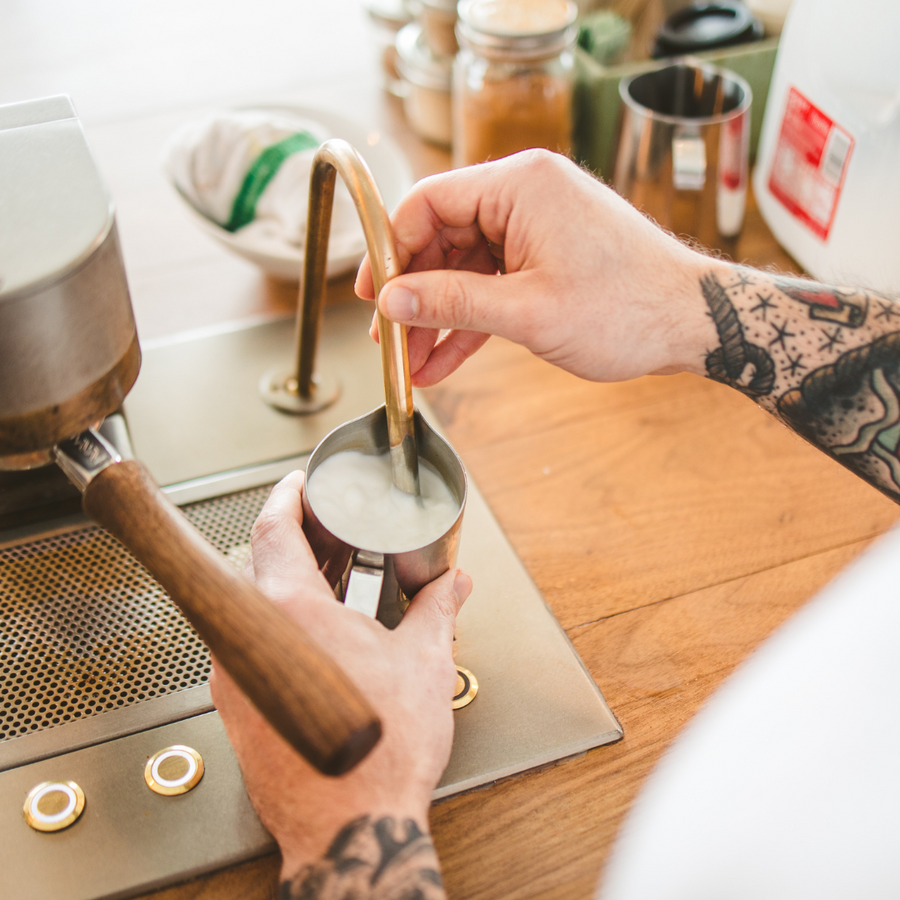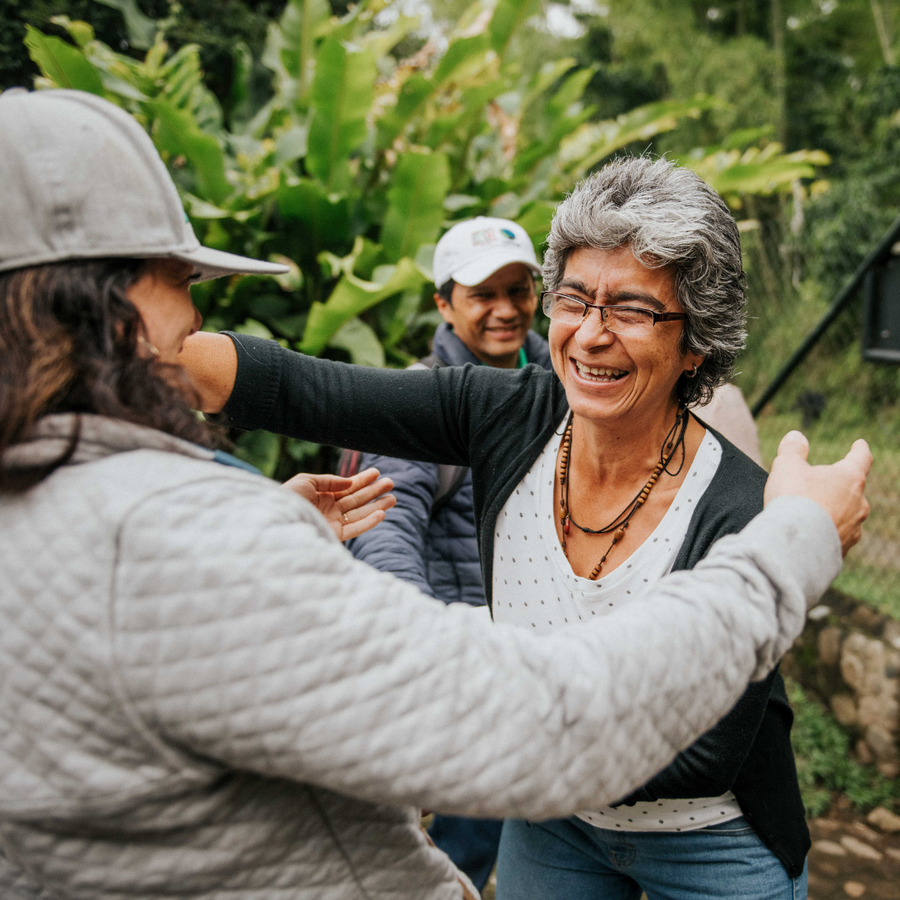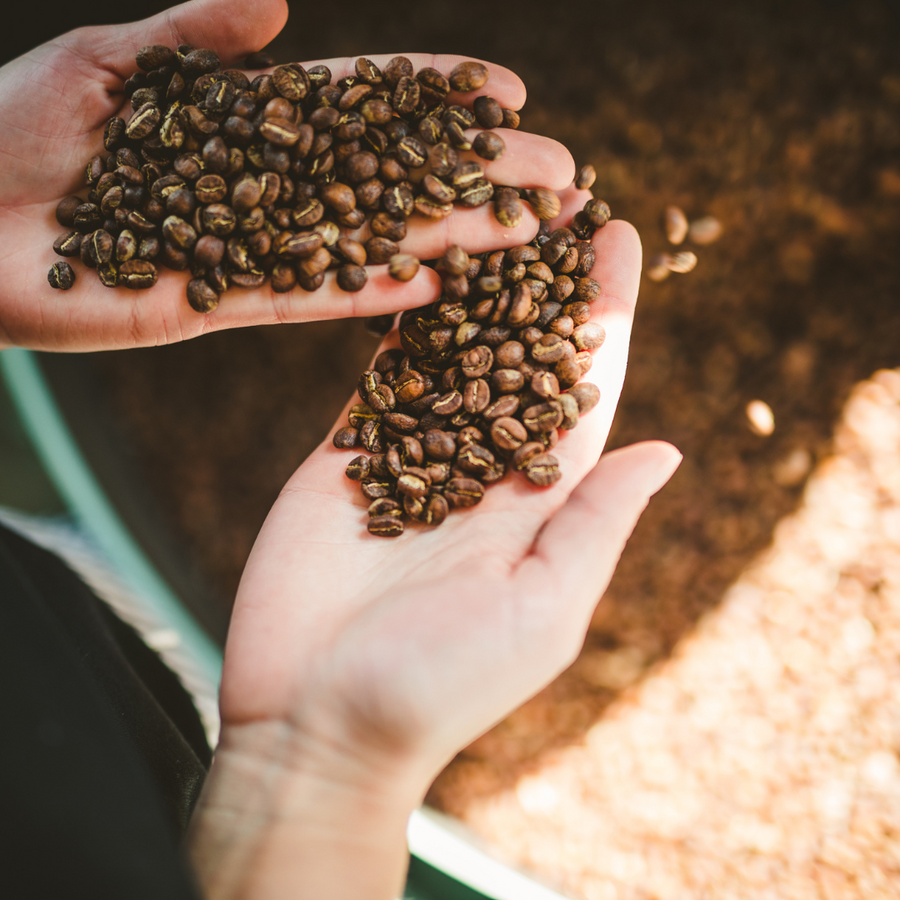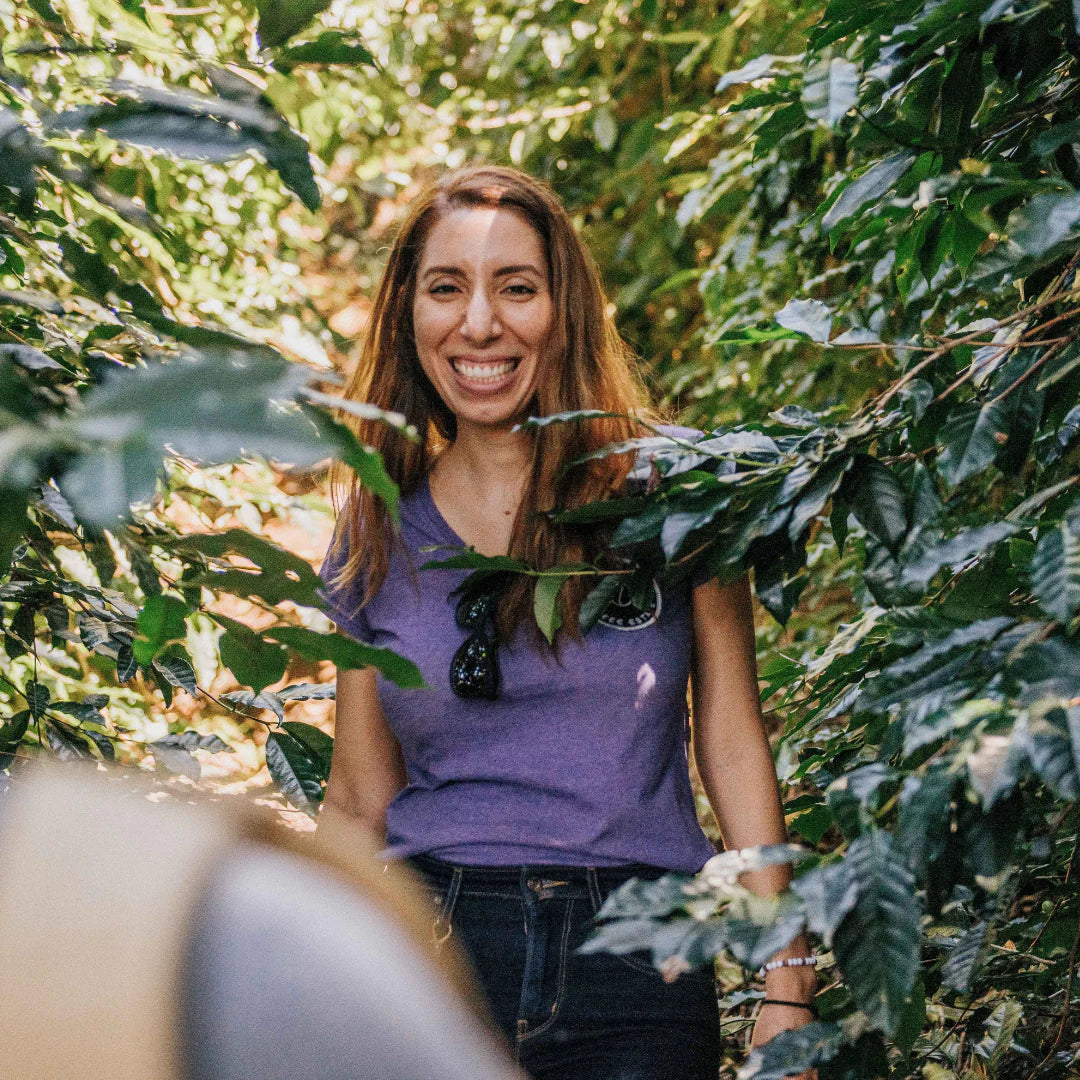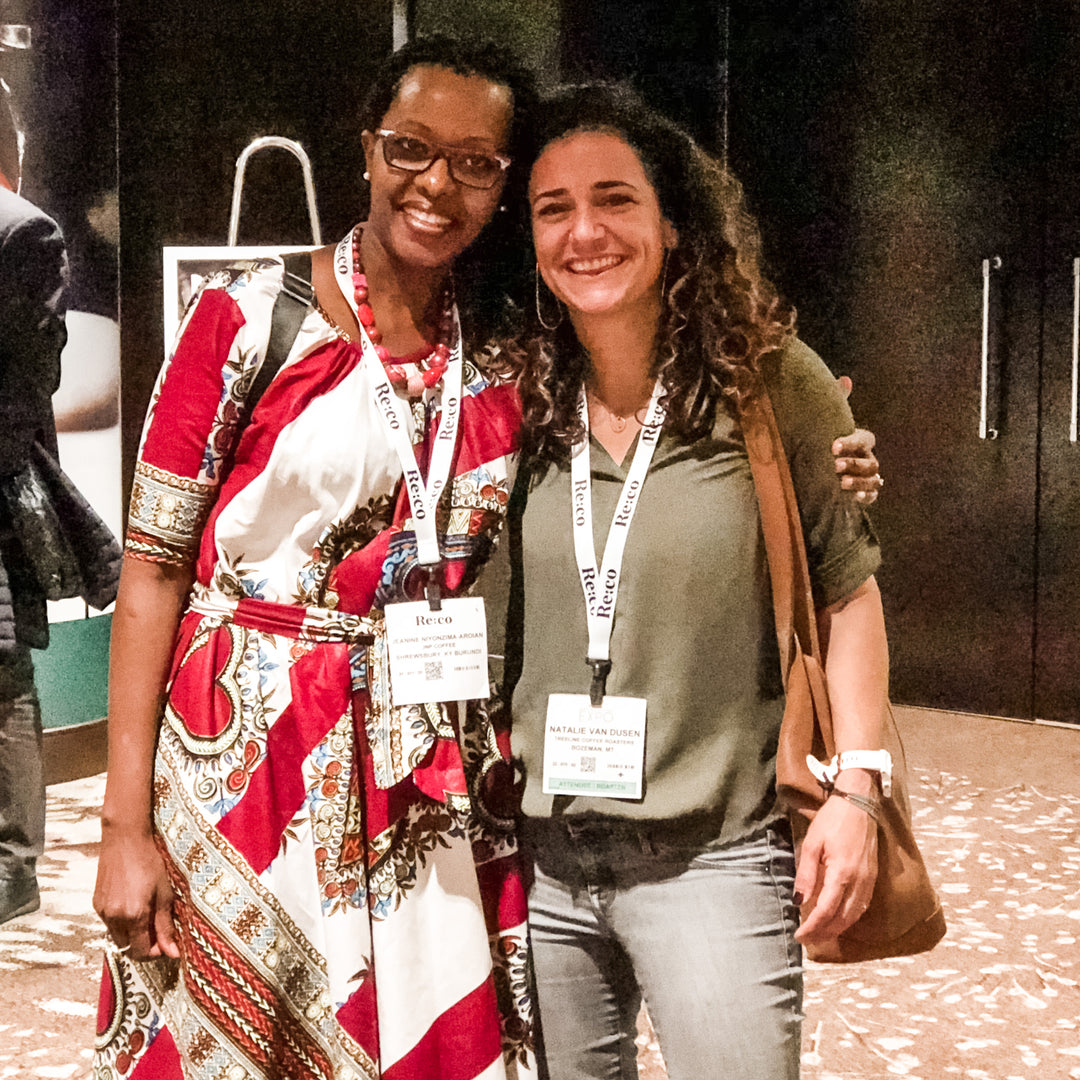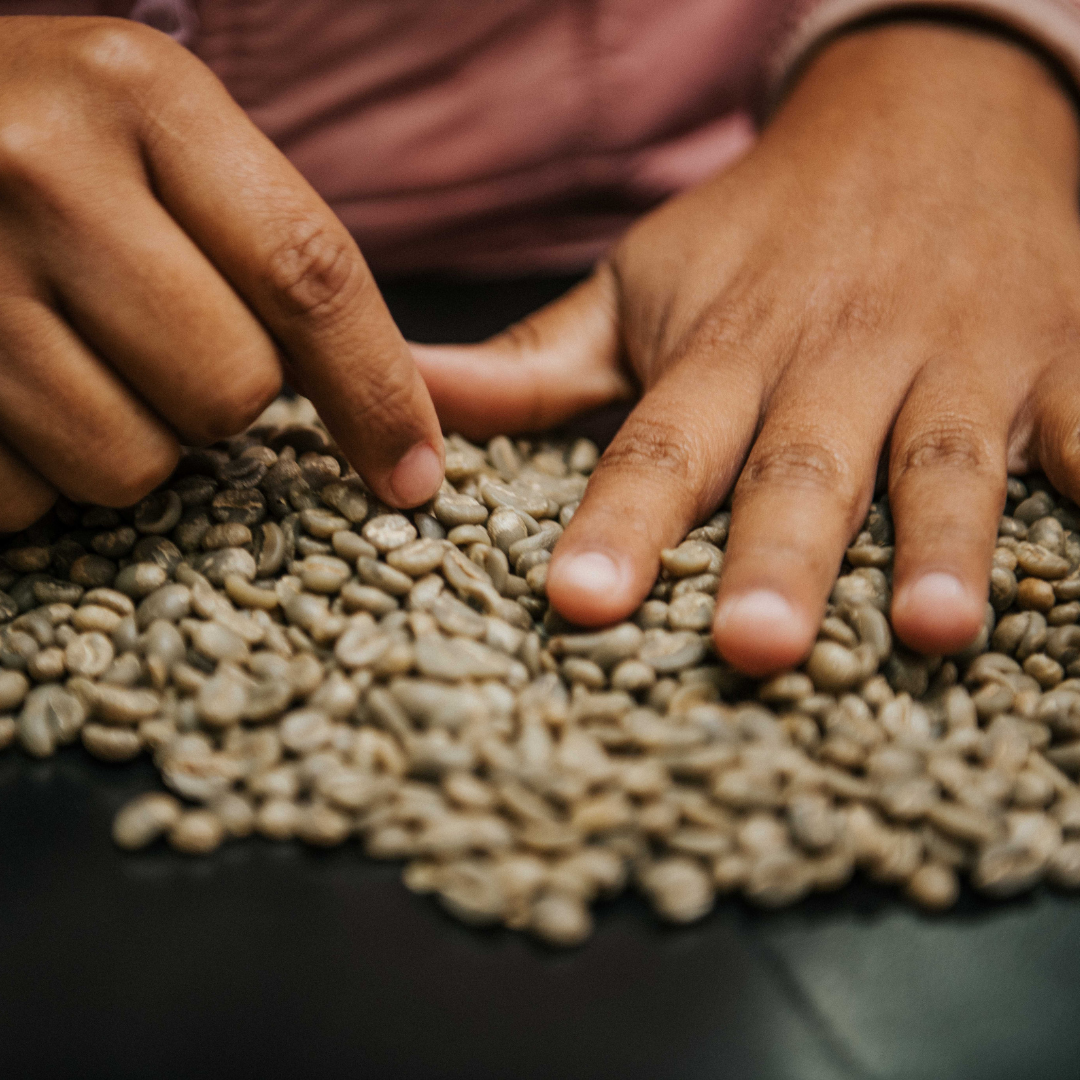Coffee + Climate Change
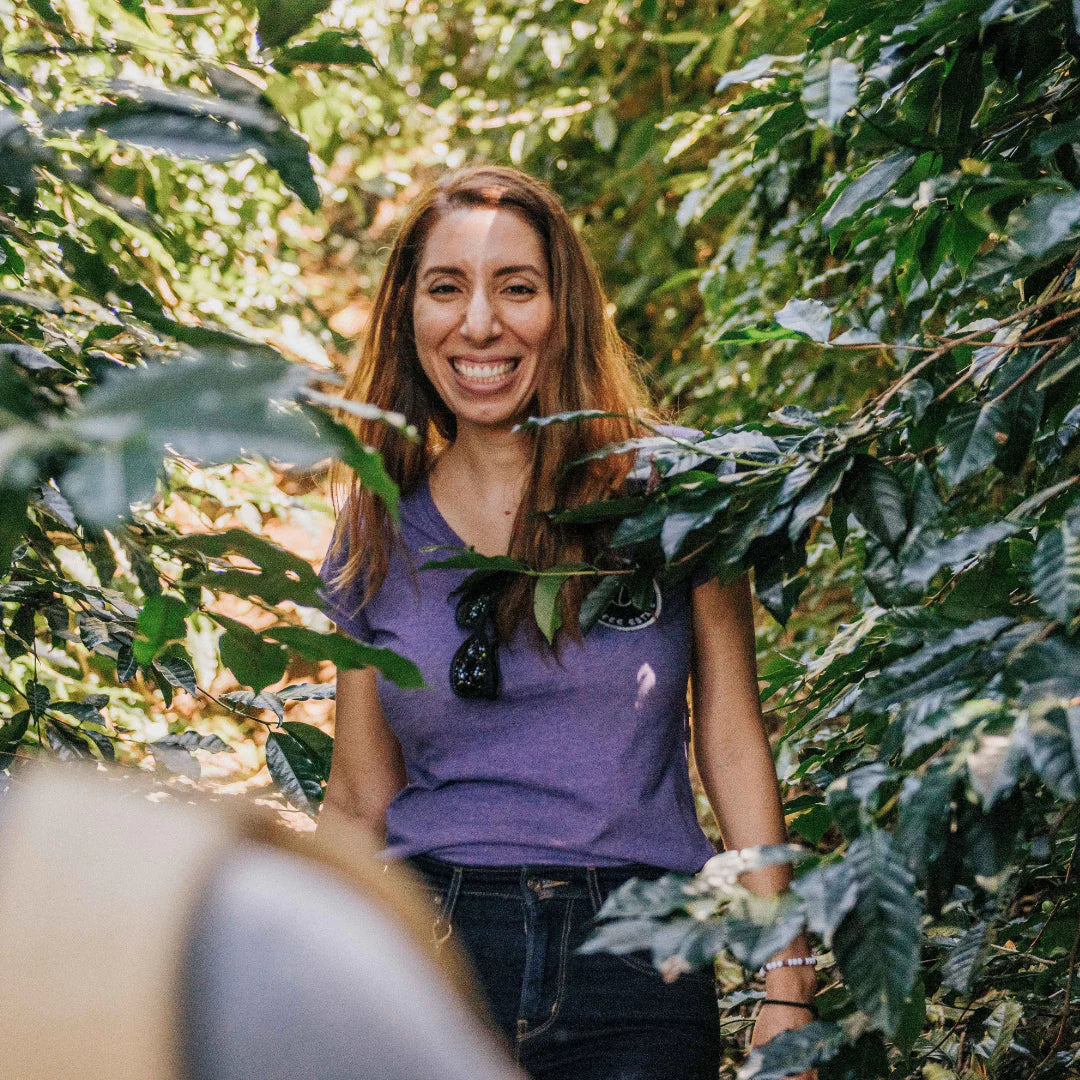
One of the things we love most about the coffee industry is the interconnectedness of people and places to bring amazing coffee all over the world. Over the years, Treeline has become close with a number of our growers and is able to communicate with them throughout the year. During one of our usual check-ins with Nadeia (grower at Finca Hortigal, producer of fan-favorite coffee, Outdoors Woman), we discovered mounting challenges facing coffee growers in her region (Panama). Nadeia's experiences highlighted the interconnectedness of coffee, and even more importantly, our world. We encourage you to read below to learn more about how the world of coffee is changing due to the effects of climate change.
Hi Nadeia! How are you? We are missing Panama!
Nadeia: I'm fine, sorting things out with the amount of rain we are getting 🌧
What does rain mean for your farm?
Nadeia: Coffee is really ripe so it fills with water and becomes really heavy -- it falls down because of the wind. Also, it dries quickly on the tree. Because after the rain the sun comes out and it gets really hot, the skin cracks and the cherry starts drying.

We try to go fast with the pickers but seems like we are always a bit behind, trying to catch up with the weather is almost impossible.
This is a batch we selected/rescued today to start our seedlings. This is what the whole farm looked like before the bad weather.


We’d love to learn more about these challenging circumstances. Can you elaborate on the conditions you’ve been seeing that have complicated your harvest?
Nadeia: I'm happy to share more info based on my experience in the farm (this is my 5th year!!) and the processing done at the mill. So far this year (crop 2023) has been my most challenging harvest, as a result of a mix of factors:
-Climate change: traditionally the peak of harvest used to happen after December 20th through the end of March/mid-April or so. However, this year has been fluctuating a lot during the past 2 years. Even though those are our "summer months" we do get showers and continuous rain that can last for up to 3-4 days. As it happened this year back at the beginning of Feb. When an abrupt change in weather happens the whole harvest is at risk. Since we intentionally let the cherries fully ripe on the tree (focusing on quality/selective harvest), these ripe cherries absorb water from the rain and become heavier. Also, their skin will start to break as the sunlight hits the cherries, (causing a wound on the skin), and finally coffee cherries will start to dry on the Tree. This happens really fast! We have to remember that even though we get rain and it may be a bit cooler in temperature for a bit, the sun always comes back in full HEAT mode, and it is very intense. Every summer feels even more intense. We also get strong winds that will shake trees big and small and make the heavy/fully ripe cherries fall down easily. * at the end, we lost a lot of coffee, and collected ONLY dried cherries from the trees for 6 days following the showers. This was very hard. The worst I have seen* These dried cherries are processed as floaters in the mill. They have lost water/mucilage/weight and look and feel almost like a raisin. Not much to do there at this point. Floaters are low-quality cherries that are sold locally at $1 to $1.50/lb or so.
Labor Force: This one is a bit tricky to explain, but basically the government provides subsidies that benefit people and enable them to "make a living" without having to earn a living. Therefore, the younger generations are opting out of work in many instances.
This is a situation that will continue to worsen in the coming years. For example, when we had the bad weather in Feb, we were short on the number of coffee pickers we needed to have in order to move faster and collect more coffee per day (racing against the weather). I have a friend in Guatemala who lives and works in a coffee farm, she said they had perfect weather conditions, perfect ripening, but half the number of workers available to pick coffee, so this year they lost about 30% of their Cherries as they dried on the trees. They had no workers to collect them. Many pickers from Guatemala are going to the USA To work and they send money back to their families in Guate, so they choose not to work. This is just for reference, similar challenges faced in the region.
Outrageous increment on all costs of production: just one example is the increase of the Yara complex fertilizer we use, the cost of the 45 KG bag has increased 135%/ bag. Everything has increased dramatically since COVID and since the war in Ukraine.
Low prices for green coffee, both locally and internationally: we have a cost of production of green coffee (per our previous harvest) of $3.60+/LB, and this cost does not include other costs of sales (export/origin costs/ customs/ transport or the empty and loaded container back to the port / yute bags / printed work on yute bags, eco tac or grain pro bags, etc.) Locally buyers are paying $2.10-$2.50/lb of green coffee and so far this year we already had to decline a contract with an importer that could not go above $3.75/lb of green coffee and so far this year we already had to decline contract with an importer that would not go above $3.75/lb.
When quality is lost at the farm because of bad weather (dried cherries), it can't be recovered. Nonetheless, those cherries did cost a lot to produce at farm level and willl continue to generate more costs during processing. At the mill all coffee is processed at the same level, and lower quality coffee is given the same effort and attention as the highest-quality beans.
We do maintain and keep reinforcing practices that allow us to mitigate in some ways the drastic impact of harsh weather conditions. I'm certain that if we didn't keep the canopy of native trees in the farms, or the natural green bushes that act as a "green fence" to protect trees from strong winds, etc...the negative impact
Thank you so much for sharing with us! We have seen similar raises in costs and are curious to see how this changes moving forward. Hopefully, on our trip to Portland for the Specialty Coffee Expo we can learn more.
Nadeia: Of course! Always can count on me for sharing our experiences. It raises a lot of questions for me and for us as a business as well.
I'm always happy to share info! the above shows how everything is connected, coffee farming/production/processing/sales- it is all a system. I appreciate your interest, thank you for asking and for caring! ❤️
If you've made it this far, thanks for bearing with us! We hope that by sharing these conversations, we are able to show of the impact that climate change already has on our world. As always, we'll keep roasting the coffees you love, and in doing so, supporting the growers impacted by these challenges.
Cheers,
The Treeline Team
